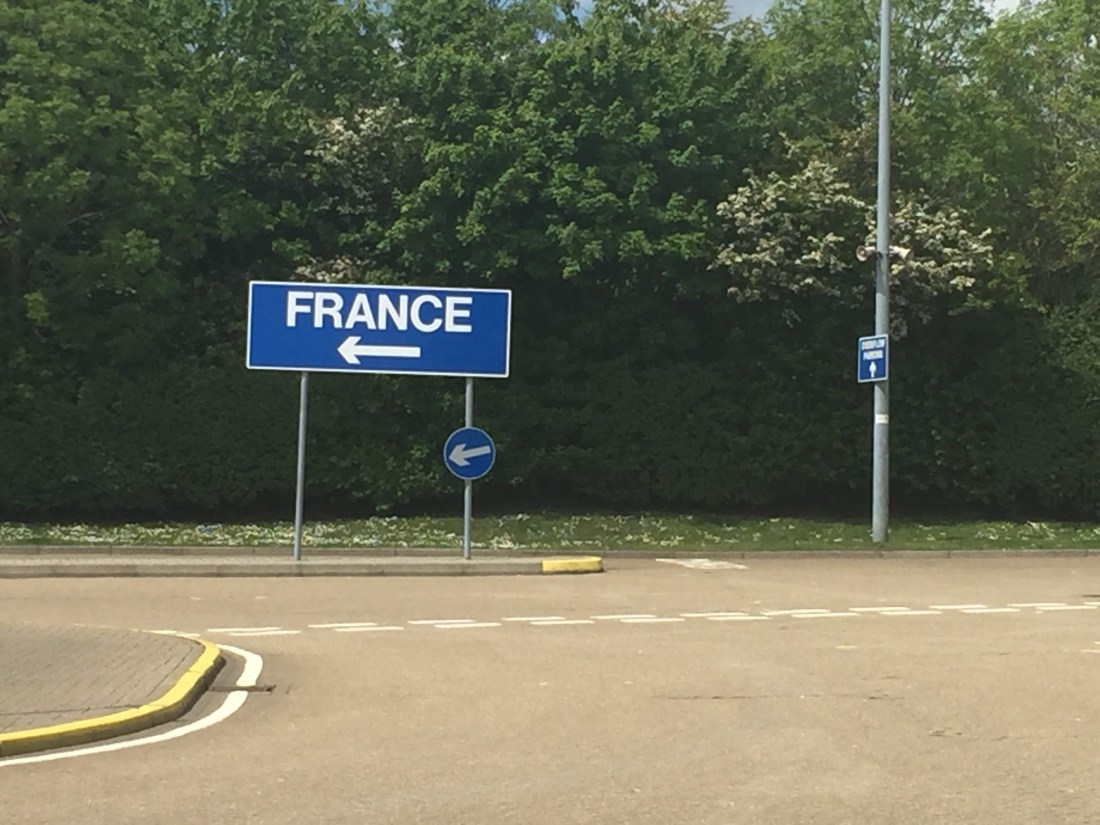It has been several months since I updated this blog. Several months of work, travel, dealing with life’s little crises.
A lot has changed since I first visited Champagne nearly four years ago.
During that first trip, they had talked about the difficulty of maintaining the place. They were both close to 80 and the housekeeping alone was killing them.
They had long ago drained the indoor pool and covered it with a floor to minimize the upkeep. And watching tiny, frail Meredith doing laundry and tromping up and down stairs with a vac pack on her back was heart-breaking.
And it seemed that Bill was’t always all there, mentally.
Nonetheless, he talked about finishing renovations on the gite, and about cleaning out the garage and restoring the outbuilding that used to house the communal feur au pain where villagers who didn’t have ovens would bring their uncooked loaves to be baked.
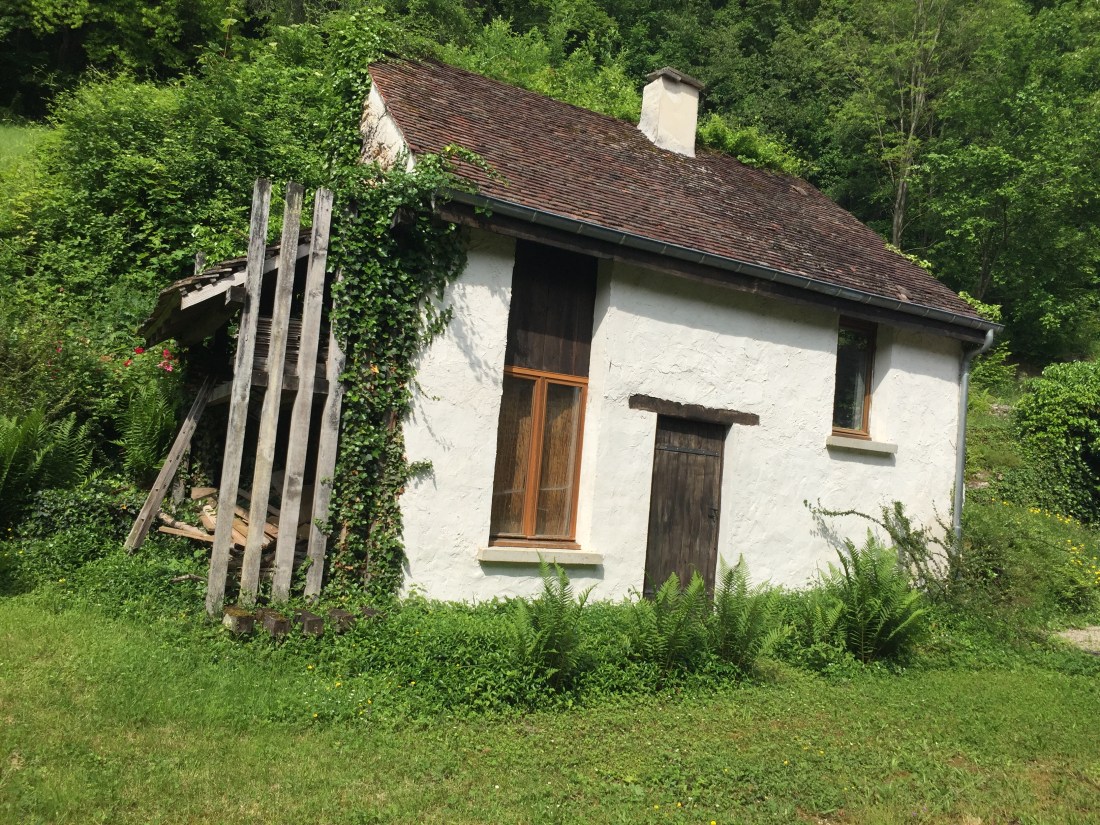
This house and its property had been the center of activity 150 years ago. The fountain at front had even been the source of water for all the lavoirs where the women of the village would come and wash their clothes.
I told them if I didn’t get a job soon I’d come back and help run the place. I had ideas in my head about renovating the A-frame cabin on the hill overlooking the house into a proper place for me to live and write. I could finish remodeling the gite and bake bread that we could sell to the local markets. I could reopen the indoor pool.
They said they were interviewing a Israeli couple to manage the B&B for them.
Well, I returned to Florida, got a great new job and sadly told Bill and Meredith that I wouldn’t be coming to help them.
They had more or less given up looking for a manager when I showed up six months later with a girlfriend in tow — still buzzed after a champagne festival held at the Tour Bouillon in Chateau Thierry.
She fell in love with the BB on Rue des Vaches and charmed Bill and Meredith.
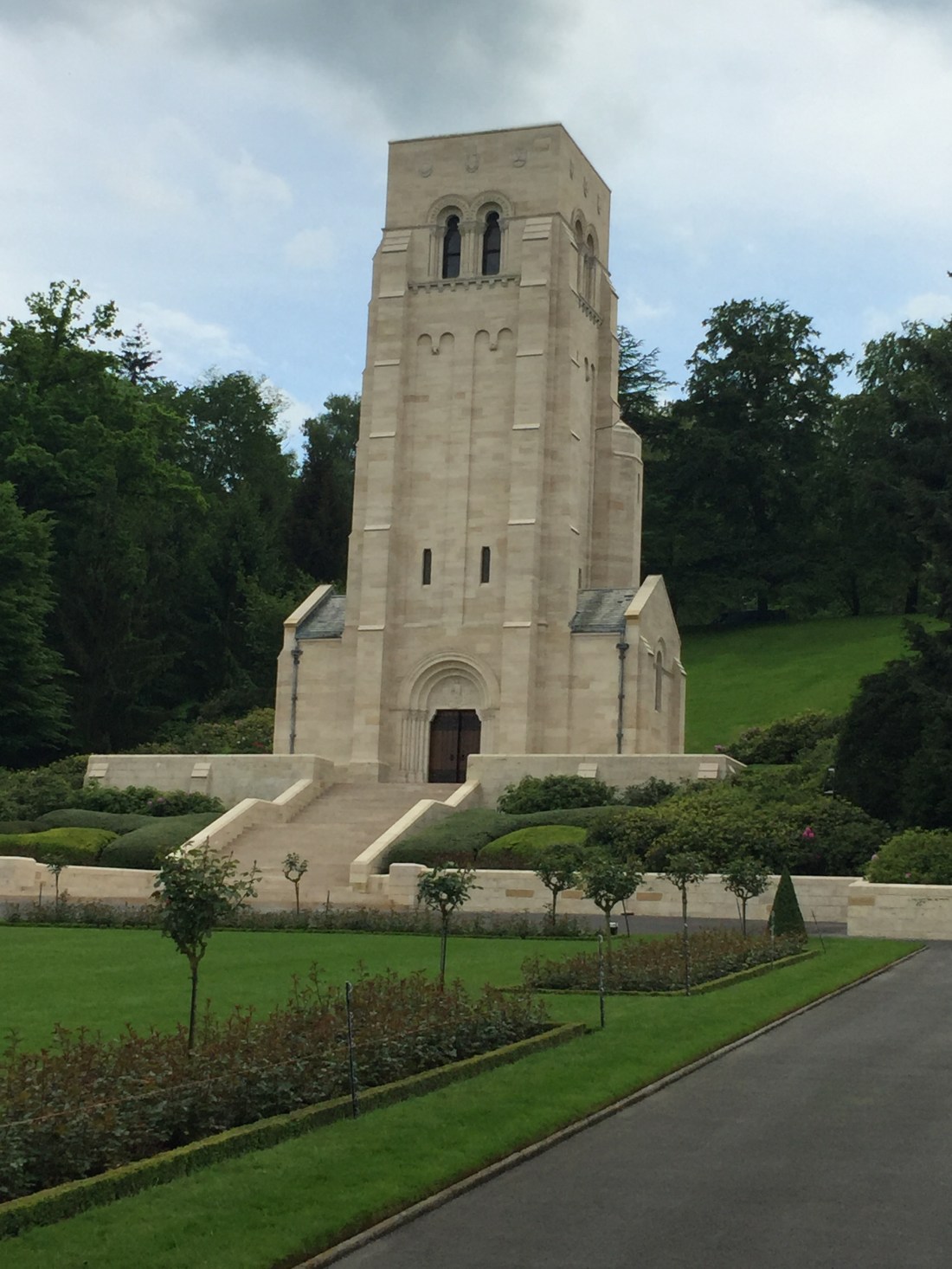 The next morning she and I visited the American Cemetery I’d been to six months earlier for the first time with Bill. Even after consulting with the gardeners about weed whackers, he never got around to buying a new one.
The next morning she and I visited the American Cemetery I’d been to six months earlier for the first time with Bill. Even after consulting with the gardeners about weed whackers, he never got around to buying a new one.
When we arrived, she got out of the car and made a beeline for the white crosses, passing row after row until she stood right in front of a particular grave that turned out to be the site where a black soldier from Tennessee was buried. My friend grew up in Tennessee. My friend felt some strong connection to this person and took it upon herself to research his name and the company he was with.
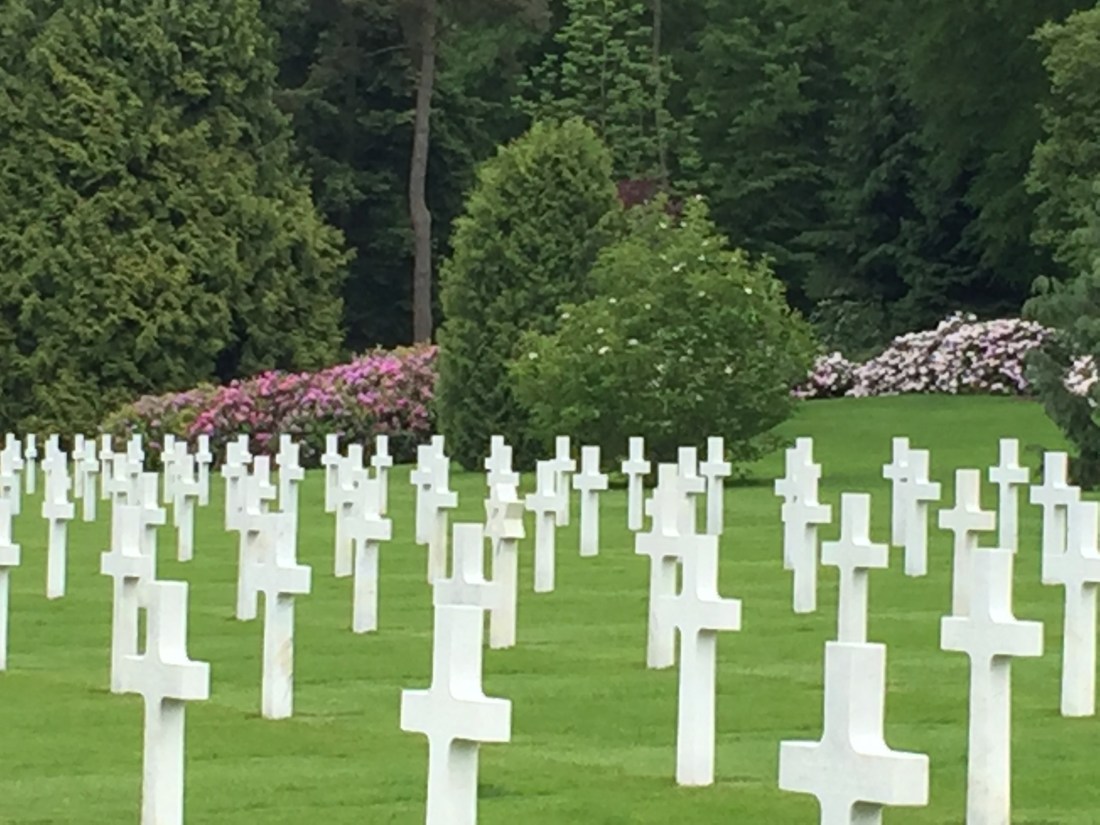
As we were getting ready to leave Bill and Meredith and continue our journey through France, Meredith made the odd remark that she probably wouldn’t be around the next time we visited.
Three years later that comment took on an ominous, chilling resonance. I learned rom his daughter that Bill and Meredith were not well, that she couldn’t eat because of her bad teeth. They had closed down the B&B because they were too sick and weak to maintain it.
After months of trying, I got a hold of Bill and told him I’d be in Paris around Thanksgiving and would love to drive out to see him and Meredith. I was hoping we could spend an expatriate Thanksgiving at their farmhouse B&B on Rue De Vache in Reuilly-Sauvigny along the Marne.
He replied that Meredith, his wife, was recovering from colon cancer surgery — thank God, he said, for French national health insurance — but that they both looked forward to seeing me, nonetheless.
As it turns out, that was the last good news I heard from them.
Before leaving Paris, I stood in line at the legendary Stohrer’s Bakery to pick up a baba au rhum for our fete. But all they had left were individual babas, and a much larger and more expensive baba chantilly. So I bought the chantilly and also grabbed a couple of Pere Noel cookies.
I figured I could pick up a goose or some poulets and vegetables once I got to their place, where I could shop at the market in Dormans.
I stopped in Meaux in search of brie de Meaux — an exasperating quest when I discovered all the cheese shops were closed on Monday. I finally arrived at their doorstep in the rain, in the dark. Their cars were parked out front, but the place looked abandoned, save for a light on in the back of the building.
I knocked. I rang the doorbell. I heard movement upstairs toward the back. I called and Bill answered. Groggy. I told them I was here as arranged. He seemed disoriented. Said he’d fallen and couldn’t walk. Meredith took the phone.
She was still feeling ragged after having had half her intestines removed a month earlier, she told me. I said I was sorry, and that if they were too weak to put me up for the night I could find a place in Chateau Thierry for the night and see them the next day.
I told her I’d brought a baba chantilly.
“Oh that sounds delicious,” she exclaimed. “But the ambulance is coming first thing in the morning to take Bill to the hospital in Soissons to run some tests.”
I finally said I’d go to Soissons to try to see Bill in hospital. That would be nice, she replied, since she couldn’t go anywhere.
I found a place in Chateau Thierry on the winding road leading to the ruins above the town and across from the Hotel Dieu. The place abutted the old chateau ruins that overlooked the village and the Marne. I had my own flat to myself. It felt like I’d stepped into a fairy tale.
The next day I went to Soissons, where I found the main hospital and the admitting clerk. They couldn’t find any records of Bill checking in. I explained he was there for a scan, perhaps only as an outpatient.
When they finally tracked him down, it turned out he was in nuclear medicine, where I was not allowed. So that was that. I called Meredith. Tried to see if she wanted some company. I offered to drop off the baba au rhum cake. Another dead end: she said she really couldn’t get up and down the stairs.
Shrugging my best Gallic shrug, I drove away down the scenic Route du Champagne, stopping briefly at a champenoisie to buy a bottle of the local product before heading off to Ronchamps to visit Notre Dame du Haut.
I gave the baba au rhum to my Air B&B hostess in Ronchamps, which she was very grateful to receive.
The next day, in a little village outside of Basel, Switzerland, I shared the Pere Noel cookies with my lovely older hosts, Herta and Rudi, over some tea made from handpicked herbs gathered from the nearby mountains 2,000 feet above sea level.
It was Thanksgiving Eve.
I don’t know when I will get to return to Reuilly Sauvigny. Meredith tells me they are doing well, and have engaged a nurse to come to the house and help Bill. His daughter said she is planning a visit with her sons. I can only hope. And wait.
























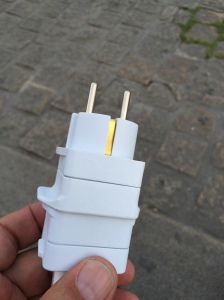
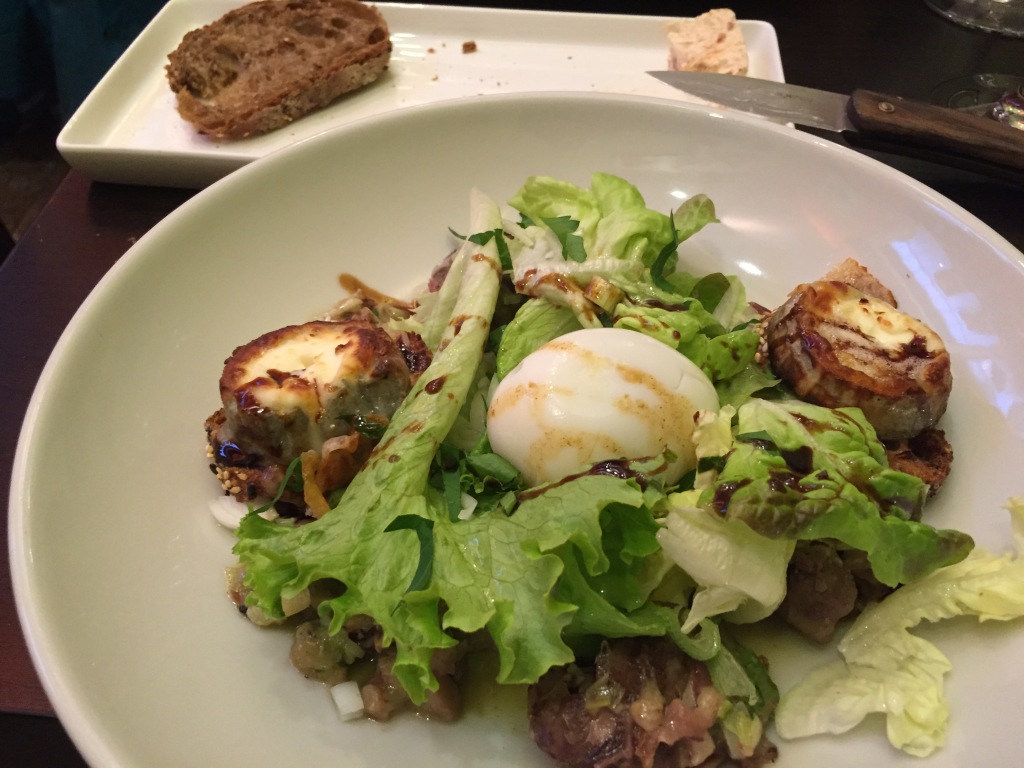
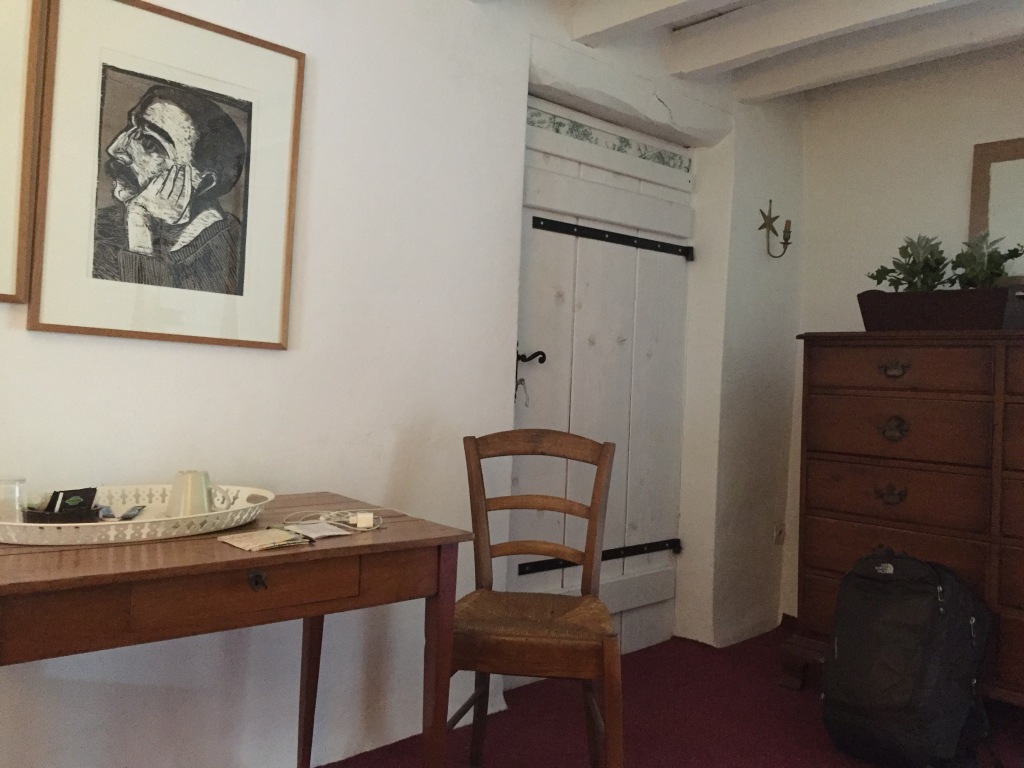 I wake up the next morning in a bed in a room where Dwight Eisenhower’s son once slept. There are rough hewn beams overhead. A table in the room has an electric kettle, packets of tea and coffee, sugar. I have my own bathroom.
I wake up the next morning in a bed in a room where Dwight Eisenhower’s son once slept. There are rough hewn beams overhead. A table in the room has an electric kettle, packets of tea and coffee, sugar. I have my own bathroom.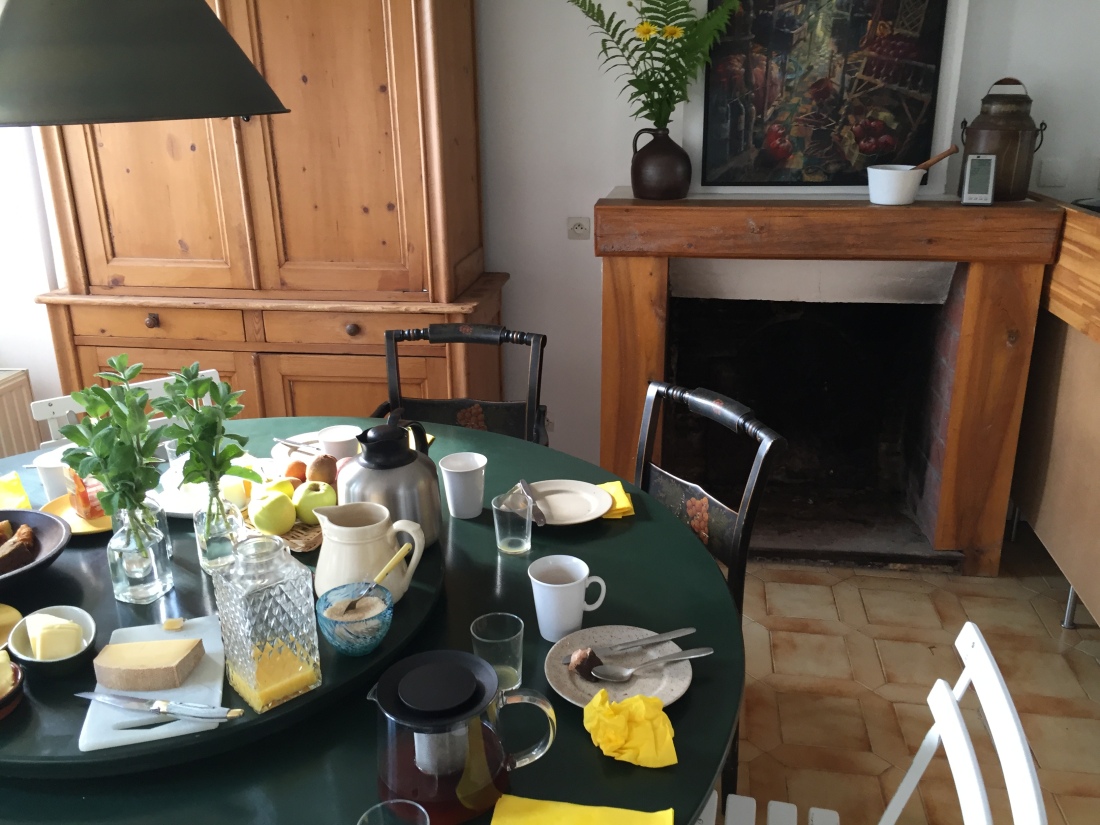
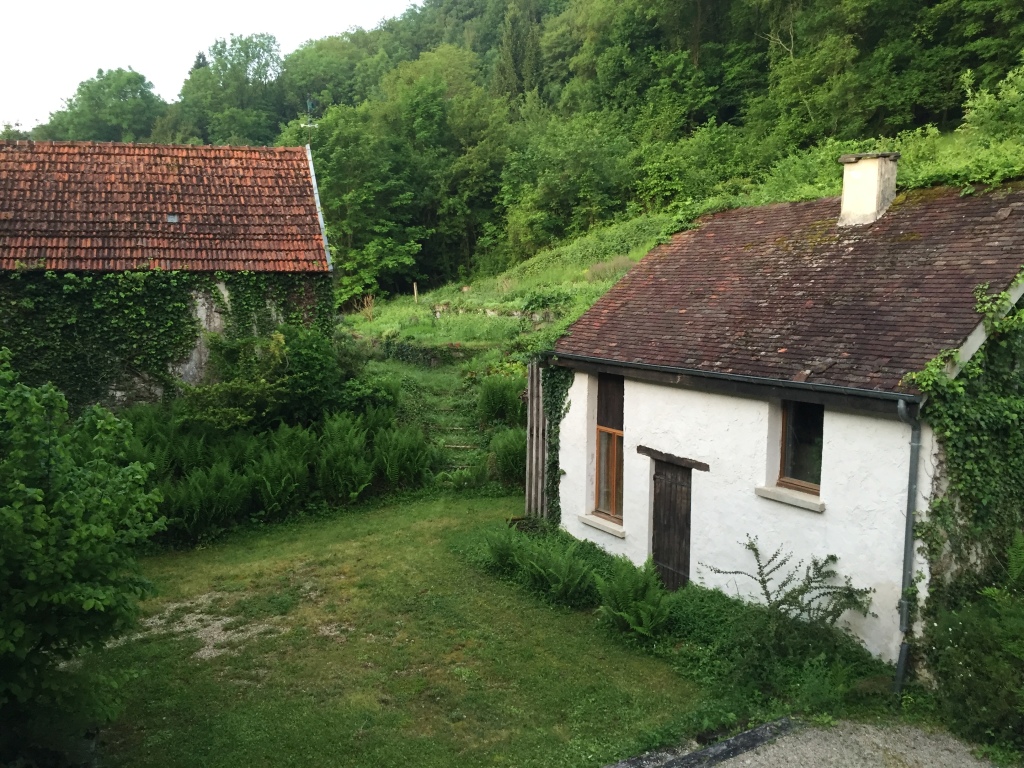





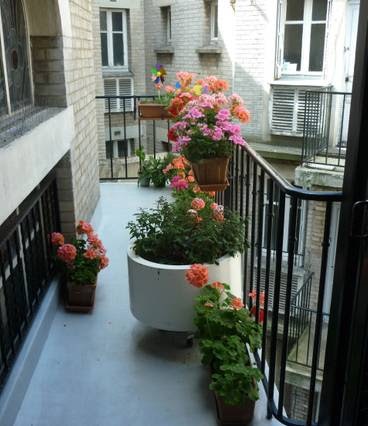 The first place I ever stayed in Paris was anything but magical. It was a dump.
The first place I ever stayed in Paris was anything but magical. It was a dump.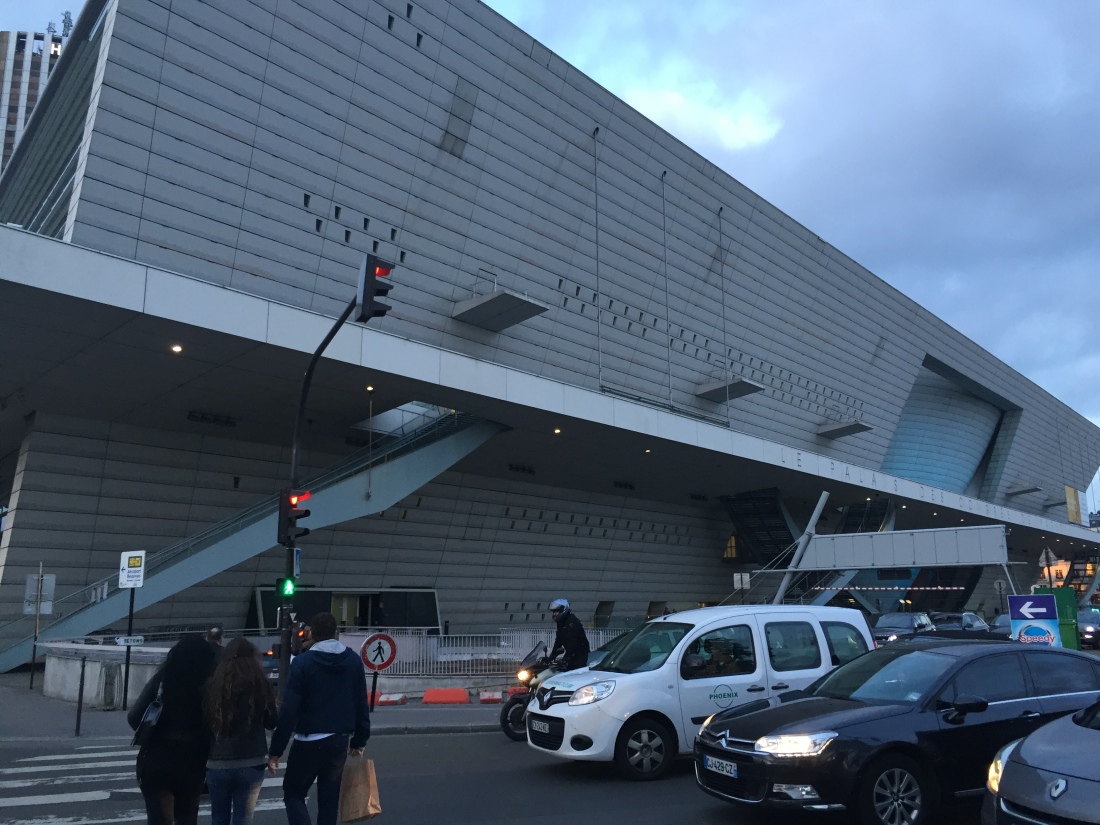
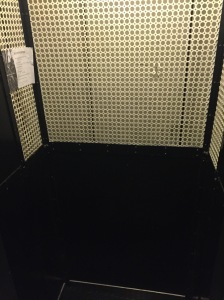
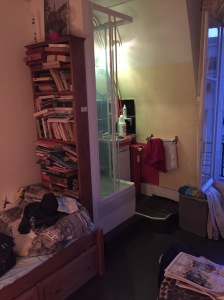
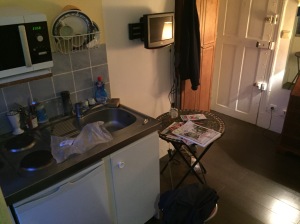 e room, or that the room was tiny. I almost didn’t mind that his clothes were thrown all over the place and there was no place for me to put my own belongings. But what really ignited my fury were the sheets. They felt damp and gritty. The whole feel of the place made me wonder if he was living here when he wasn’t renting it out on AirBnB. He probably slept under a bridge or in a university library when the room was booked. No way he could possibly have a girlfriend, or even just a friend friend.
e room, or that the room was tiny. I almost didn’t mind that his clothes were thrown all over the place and there was no place for me to put my own belongings. But what really ignited my fury were the sheets. They felt damp and gritty. The whole feel of the place made me wonder if he was living here when he wasn’t renting it out on AirBnB. He probably slept under a bridge or in a university library when the room was booked. No way he could possibly have a girlfriend, or even just a friend friend.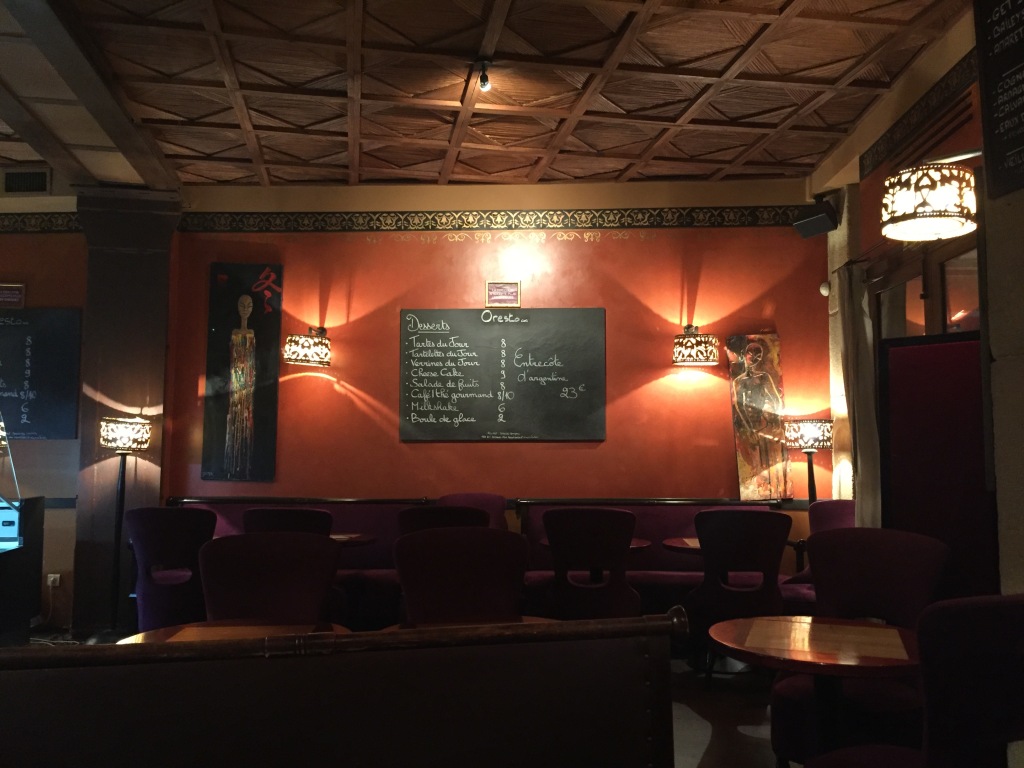
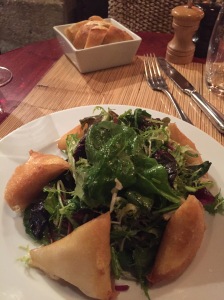
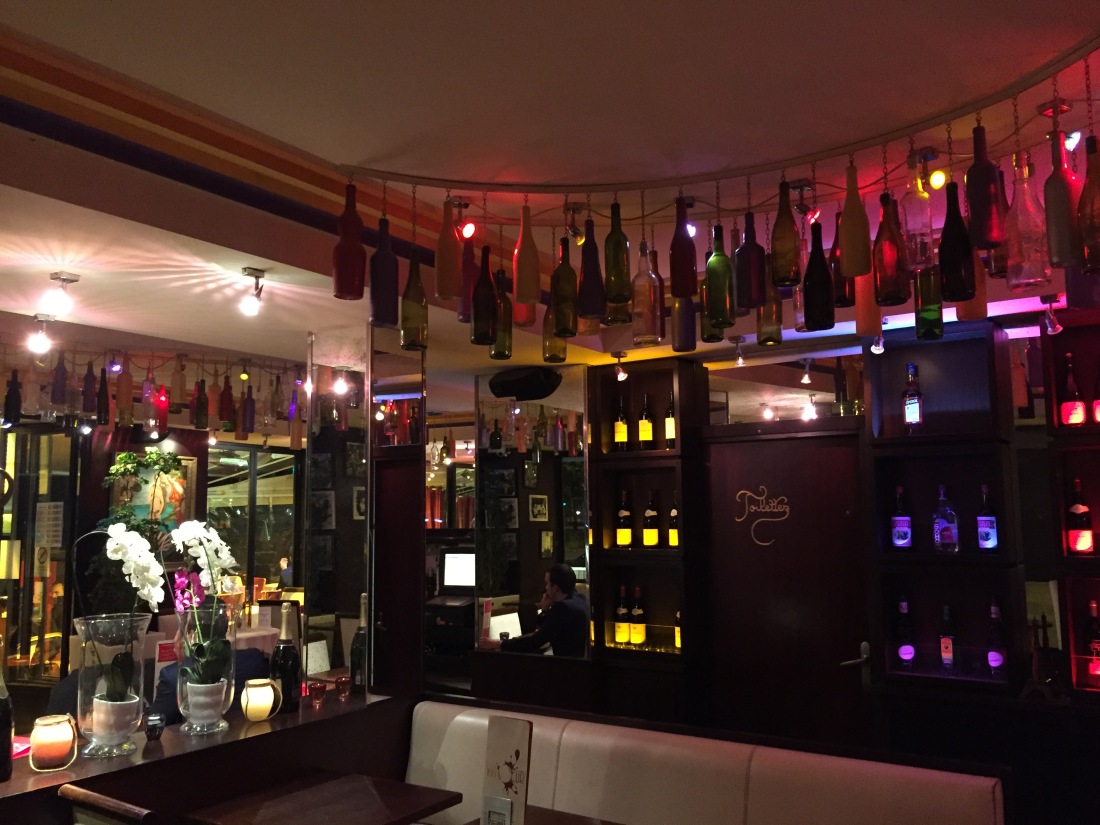
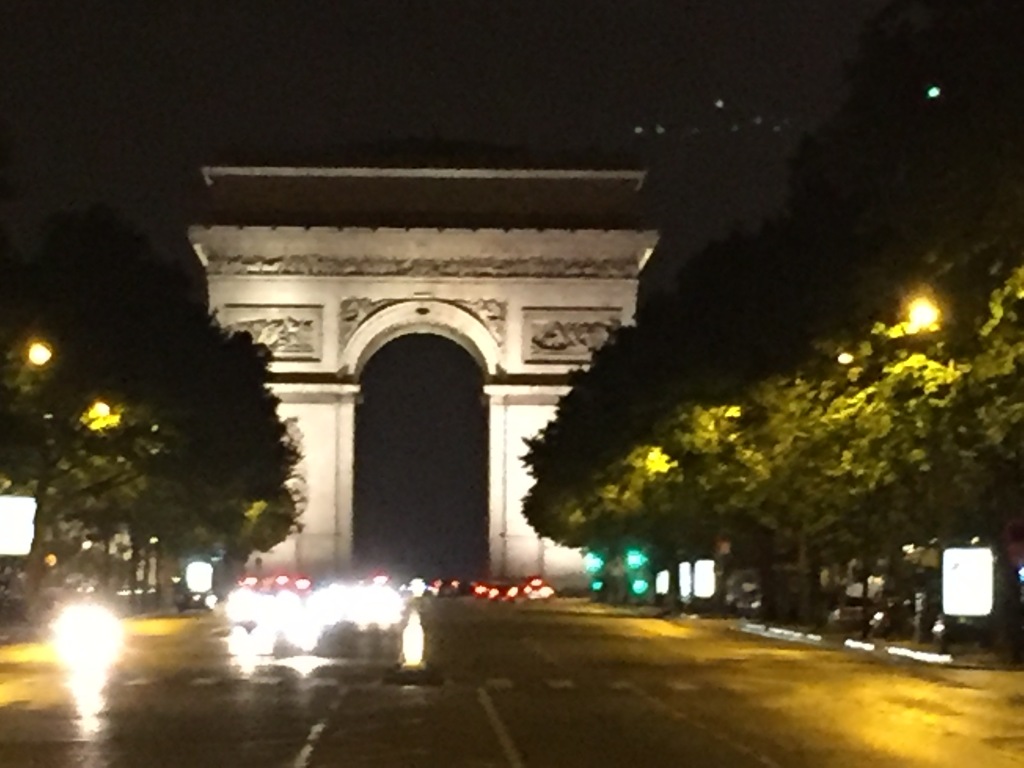
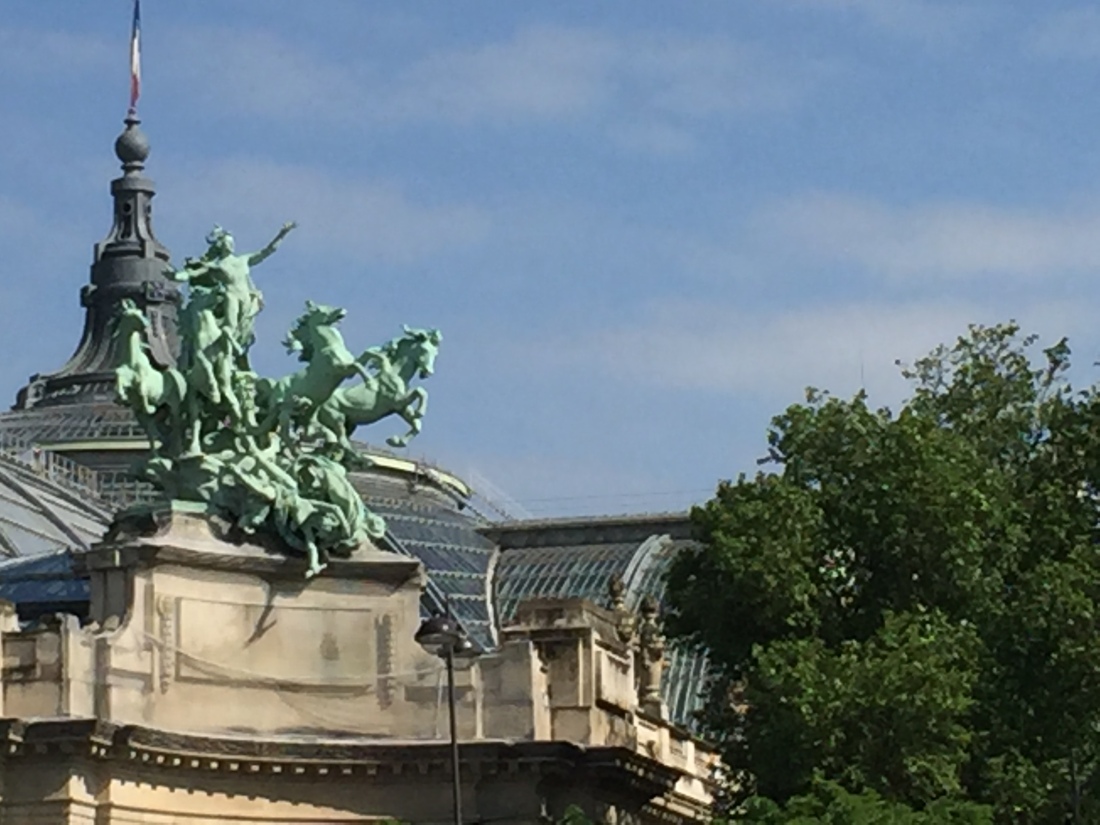
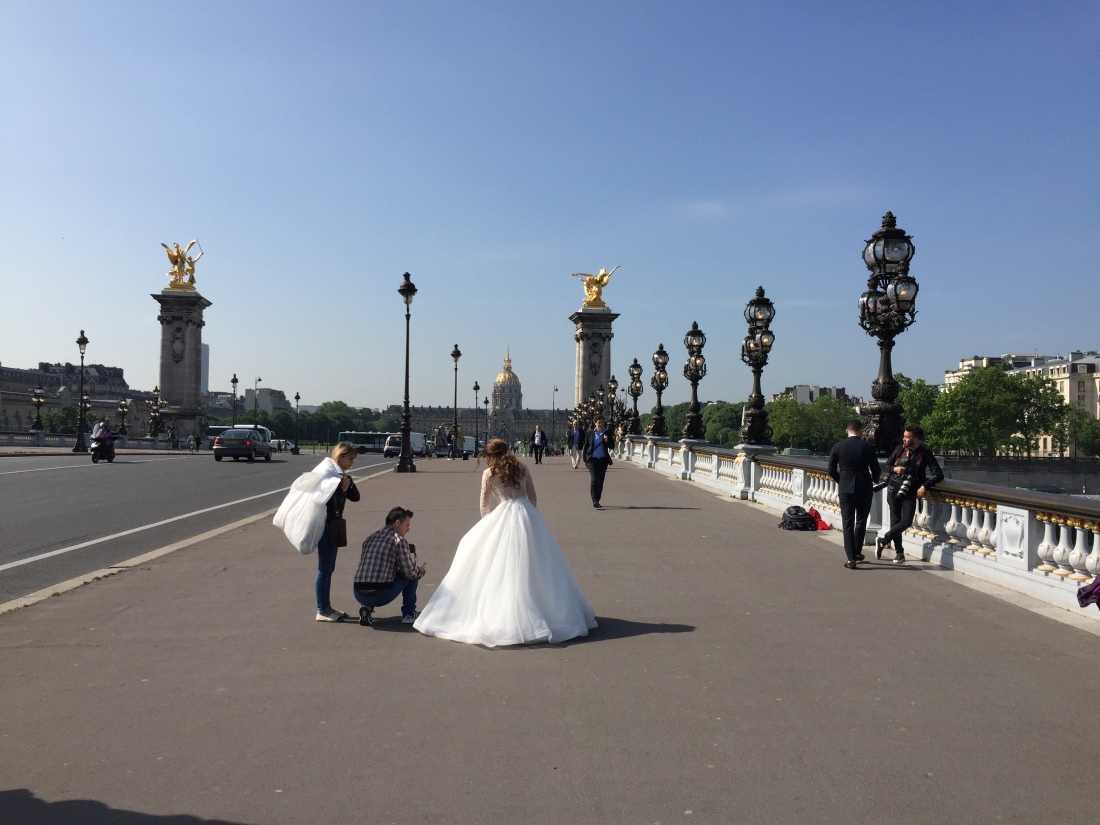
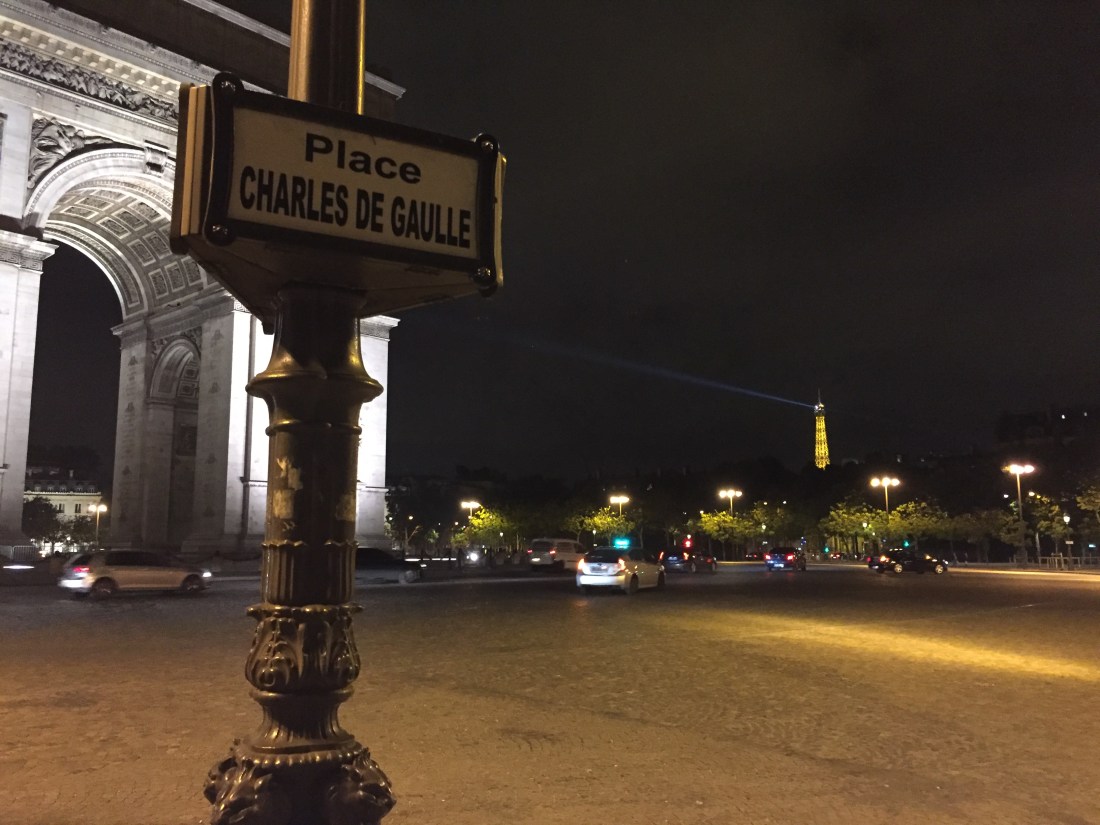 I’ve been to Paris four times in the last three years, and six times to France. And I will probably return to France this summer, if all goes well. Not saying this to boast or brag. It isn’t that expensive to hop on a flight from Orlando to Paris, and thanks to AirBnB, accommodations are cheap, too.
I’ve been to Paris four times in the last three years, and six times to France. And I will probably return to France this summer, if all goes well. Not saying this to boast or brag. It isn’t that expensive to hop on a flight from Orlando to Paris, and thanks to AirBnB, accommodations are cheap, too.